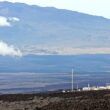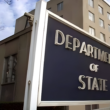The mistrust remains
March 11, 2016
The mistrust remains
Mistrust of the nuclear industry is deep-rooted in Japan. This sentiment had been discernible in public opinion over several decades prior to March 11, 2011. A series of accidents, one of which was serious, occurred at several nuclear reactors in the 1990s. Additionally, the Tokyo Electric Power Co. (TEPCO), operator of the Fukushima Daiichi plant, systematically mishandled inspection, repair, and maintenance records for its reactors between 2000 and 2002. An engineer-turned-whistleblower even revealed that prolonged mismanagement allowed TEPCO to foster a corporate culture in which reporting problems to regulatory authorities or local governments was not considered obligatory, as long as they were determined in-house to be unimportant. The nuclear industry’s negative image as secretive and untrustworthy was lingering, well before the Fukushima accident happened.
But during the 2011 crisis, TEPCO was hardly alone in its failure to communicate. The Nuclear Industry and Safety Agency (NISA) and the Nuclear Safety Commission (NSC)—the two government authorities charged with managing and coordinating an official response to a nuclear accident at the time—were both seemingly powerless to assuage public anxieties as the disaster unfolded. After announcing the possibility of a meltdown on March 12, for example, NISA later watered down and backtracked from its earlier position. Nuclear engineers and radiologists were also unable to address the public’s uncertainty. The official position was so opaque regarding the risks of a meltdown that a consensus among scientists could not be reached. This paralysis and disagreement in turn left the Japanese public reliant on contradictory opinions from TV experts and rapidly spreading online rumors for their information. People understandably became disillusioned with the inability of TEPCO and the Japanese government to manage the crisis and the whole nuclear community’s failure to provide the public with adequate and timely information.
Outside experts had long argued that the fuel core of the reactor began melting within hours of being struck by the tsunami, and TEPCO executives were recorded in a video conference call mentioning the possibility of a meltdown in Unit One and Unit Three as early as the third day of the crisis. Yet TEPCO failed to acknowledge the meltdown publicly for two months, explaining the delay as being due to their unclear internal regulations regarding when a meltdown should be declared. On February 26, 2016, after almost five years of denials, the company admitted that it did in fact have an internal manual of regulations during the crisis, which, if it had been followed, required them to announce earlier that a nuclear meltdown was occurring. TEPCO only revealed the manual’s existence following persistent pressure from the Niigata prefectural government to look again. Discovery of the manual further damages this already-blighted company’s credibility. The company was undeniably overwhelmed by the combination of a once-in-several-centuries natural disaster and a nuclear accident on an unprecedented scale. Nevertheless, TEPCO should have been more cooperative in gathering and disclosing information, rather than steadfastly avoiding this responsibility to the public.
Distrust of the industry and regulators remains, and it is making the debate over nuclear policies more complex and divisive. Japan faces a number of nuclear-related challenges, from Fukushima Daiichi’s decommissioning and the decontamination of the surrounding areas to research into the long-term health effects of low-dose radiation exposure. Measures must simultaneously be taken to ensure national energy security, reduce carbon dioxide emissions, and dispose of existing nuclear material. All these efforts will entail risks; without adequate trust-building efforts, Japan, as a society, will not be able to properly evaluate whether such risks the can ever be justified by the returns of nuclear energy. Proper assessments will require rebuilding a measure of confidence in Japan’s institutions. Communication by business and government fosters the public trust that is indispensable to the policy-making process.
Kay Kitazawa
staff director
EXPERT COMMENTARY
the Rebuild Japan Initiative Foundation's Independent Investigation Commission on the Fukushima Daiichi Nuclear Accident













